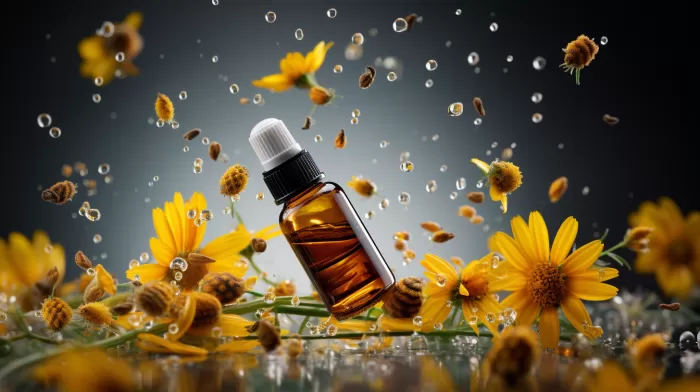Pollen is likely the last thing on your mind when thinking of health supplements. As a matter of fact, many people regard pollen as nothing more than an irritant. However, managing prostate health might take the sting out of your association with pollen. When made into an extract, pollen has been shown to have significant anti-inflammatory properties and the ability to manage symptoms of two very common prostate problems: an enlarged prostate (benign prostatic hyperplasia, or BPH) and prostatitis.
So, let’s take a closer look at the different types of pollen extracts, how they help improve prostate health, and numerous studies that lend credibility to their use.
Pollen Extracts: What are they?
The most studied pollen extracts are cernilton, flower pollen, rye grass pollen, and bee pollen. Cernilton is a flower-pollen extract composed of standardized extracts from corn pollen, rye pollen, and timothy pollen. For decades, it’s been used with considerable success throughout Europe to manage common prostate issues.
It’s important to note that pollen extracts may not be suitable if you have grass, flower, or other plant allergies. Always consult with a healthcare provider before you start taking pollen extract supplements.
Pollen Extracts and Enlarged Prostate Health
Symptoms of an enlarged prostate can include frequent and urgent urination, difficulty starting urination, nocturia (the need to urinate during the night), and painful urination, among others. Pollen extracts can help relieve these symptoms.
A study published in the British Journal of Urology1 assigned 53 men with an enlarged prostate to take either pollen extract or a placebo daily for six months. Symptoms improved in 69% of the men who took the pollen extract but only in 30% of those who took placebos.
A Japanese study2 involving 79 men with an enlarged prostate found that taking approximately 380 mg of pollen extract daily for more than 12 weeks provided symptom relief for 85% of the men. The most improvement was seen in urinary urgency and painful urination.
A meta-analysis3 of four studies involving 444 men with BPH reported that pollen extracts more effectively improved urinary symptoms than placebos. The reviewers noted that pollen “modestly improves overall urologic symptoms, including nocturia.”
Pollen Extracts and Prostatitis
Prostatitis is an inflammation of the prostate that causes swelling, urination problems, erectile dysfunction, and general feelings of fatigue. Approximately 50% of men will develop prostatitis during their lifetime, and the majority of cases are chronic. Pollen extract may help manage prostatitis symptoms.
The journal European Urology4 reported that 130 men with chronic prostatitis took either pollen extract (70 men) or a placebo (60) daily for 12 weeks. Men who took pollen enjoyed significant improvements in pain, total symptoms, and quality of life compared with men in the placebo group.
In a double-blind trial5, 60 men with chronic prostatitis were assigned to take either pollen extract or a placebo daily for six months. Those that took pollen reported either significant improvement or complete elimination of symptoms after six months. The authors concluded that pollen was “superior to placebo in providing symptomatic relief.”
If you’re coping with an enlarged prostate or prostatitis, pollen extract could provide relief from annoying and potentially debilitating urinary symptoms. Be sure to check with your healthcare provider before starting pollen extract or any other supplement program for prostate health.
- Treatment of outflow tract obstruction due to benign prostatic hyperplasia with the pollen extract cernilton. A double-blind, placebo-controlled study. ↩
- Clinical evaluation of long-term treatment using cernitin pollen extract in patients with benign prostatic hyperplasia. ↩
- Cernilton for benign prostatic hyperplasia. ↩
- A pollen extract (Cernilton) in patients with inflammatory chronic prostatitis-chronic pelvic pain syndrome: a multicenter, randomized, prospective, double-blind, placebo-controlled phase 3 study. ↩
- Effects of pollen extract preparation Prostat/Poltit on lower urinary tract symptoms in patients with chronic nonbacterial prostatitis/chronic pelvic pain syndrome: a randomized, double-blind, placebo-controlled study. ↩



